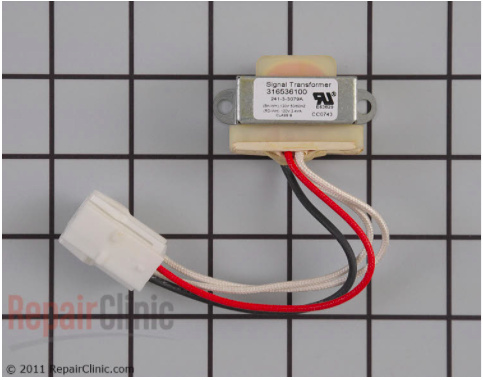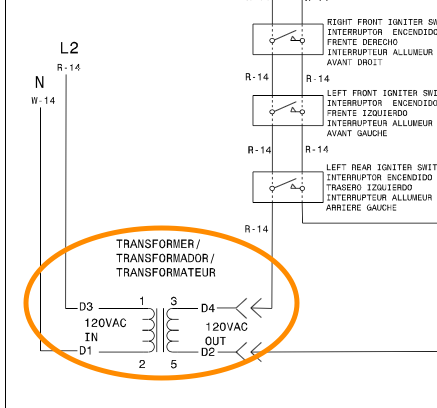Say you’re working on the cooktop of a Frigidaire gas range, and after chasing some wires, you find that this component is in the circuit, right after the power comes in from the outlet:

The label calls it a “signal transformer”, but what is the point of this device, exactly? Well, as with most circuit mysteries, the schematic will give us some more insight…

How odd — a transformer that, seemingly, doesn’t do anything. You have 120 VAC going to the primary, and 120 VAC coming out of the secondary. No stepping up or stepping down of any kind. Why is this component even here?
This is what’s called a 1:1 transformer, or also an isolation transformer. As that second name suggests, the purpose of this transformer is to isolate the appliance’s circuit from that of the power supply. There is no physical conductor connecting the appliance’s circuit to the power supply. Rather, thanks to induction, the 120 VAC present on the primary induces 120 VAC on the secondary.
Why did the engineers bother to add a component like this? Isolation is desirable for several reasons. One is safety — not having the appliances circuit directly connected to the power supply eliminates some possibilities of electrocution.
Another reason is spike reduction. Various things can cause spikes in the power coming into an appliance, and left unchecked, those spikes can cause damage to electronic components. An isolating transformer helps to dampen these spikes, ensuring better longevity of the appliance.
Want to learn more about electricity and the kinds of technology you’ll encounter in appliance repair? Click below to check out the Core course right here at the Master Samurai Tech Academy.